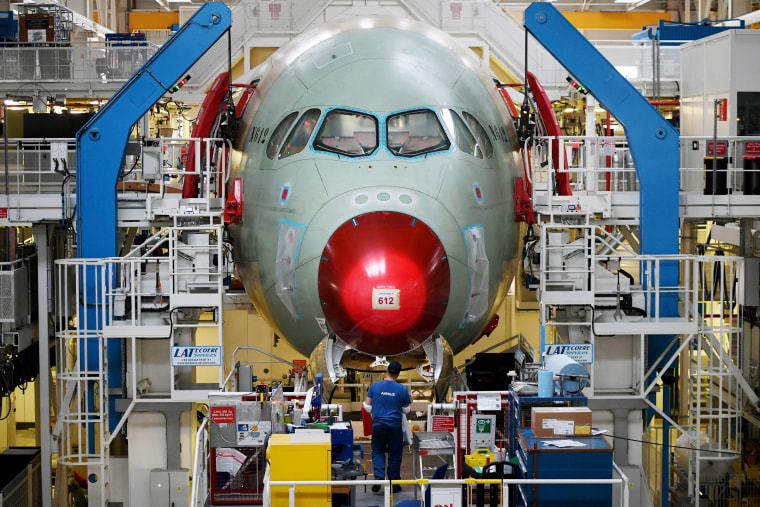
Airplane Giants Boeing and Airbus Accused of Using Fake Titanium in Aircraft, According to FAA
The Federal Aviation Administration (FAA) has raised a red flag regarding potential counterfeit titanium being used in aircraft produced by major aerospace companies, Boeing and Airbus. This concerning revelation comes as a shock to the aviation industry, posing serious safety risks and raising questions about the integrity of the supply chain within the aerospace sector.
Counterfeit materials have long been a challenge in various industries, with the potential to compromise the quality, durability, and safety of products. In the aerospace industry, where precision engineering and high-quality materials are paramount, the use of counterfeit titanium poses a significant risk to the safety of the flying public.
Titanium is a critical material used in aircraft construction due to its lightweight, high strength, and corrosion-resistant properties. Any compromise in the quality of titanium used in the manufacturing of aircraft components can have catastrophic consequences, leading to structural failures, inflight emergencies, and even crashes.
The FAA’s warning raises concerns not only about the specific aircraft produced by Boeing and Airbus but also about the broader implications for the entire aerospace supply chain. It underscores the importance of stringent quality control measures, supply chain transparency, and regulatory oversight to ensure that counterfeit materials do not find their way into critical components of aircraft.
The revelation that counterfeit titanium may have been used in Boeing and Airbus planes serves as a wake-up call for the aerospace industry to reevaluate its sourcing practices, quality assurance procedures, and regulatory compliance. It highlights the need for enhanced collaboration between manufacturers, suppliers, regulators, and industry stakeholders to ensure that such lapses in quality and safety are promptly identified and addressed.
Moving forward, it is imperative for Boeing, Airbus, and other aerospace companies to conduct thorough investigations into their supply chains, implement robust quality control systems, and adopt stringent measures to prevent the use of counterfeit materials in aircraft production. The safety and security of air travel depend on the industry’s collective efforts to uphold the highest standards of quality and integrity in every aspect of aircraft manufacturing.
